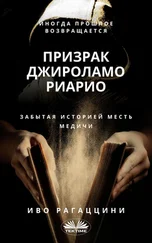After the violent defeat, which ended with the personal sacrifice of the consul Flaminius himself, 24that land was called Roman-dia and Roman-via at the time because 25they lead to Rome.
But Caesar requested and promised his most loyal legionaries much more than the land of Romagna, namely Rome and the whole of Italy, if they decided to follow him and conquer the land that could be glimpsed and seen in the Marche immediately after Rimini.
So, he gathered together the most aggressive troops who wanted to continue fighting near the Rubicon and prepared to lead them to Rome.
What was most tempting to many, but feared by others, which caused a few to defect from Caesar's ranks, was they perceived this act to be a betrayal of their mission.
One in particular was the brave general Titus Labienus, 26who deserted Caesar and sided with Pompey Magnus, Caesar's political and military rival, who was deployed beyond the Rubicon. He took with him about 3,700 men on horseback and legionaries.
But there were also a few Gallic peoples who did not want to follow Caesar and were content to settle forever in the land of Romagna that he had promised them, even if, Caesar asked them to defend his rear guard from Pompey's troops who could descend from Spain towards Italy.
Thus a few Gallic legions began to resettle the current Romagna, depopulated by the previous civil revolt of Marius and Sulla.
But let's return to Caesar's journey towards Cesena.
Caesar's arrival in Cesena (Curve Caes Arena)
Caesar and the commander Hortensius, after having crossed the Via Decimana, came to Curva Caes Arena, 27where many men who had always been loyal to the populares 28under his Uncle Gaius Marius were awaiting him.
Tens of years earlier in Romagna, the populares, headed by Caesar's uncle, Gaius Marius, were grievously defeated militarily by the optimates under Sulla between Forlì and Faenza that had swept the countryside clean of the population.
Caesar was rebuilding and reorganizing many things.
There in that land he had promised and given away much land and many public offices to his veterans and he was embellishing and Romanizing much of Romagna with taxes on land and products.
Government buildings, theatres, gladiator barracks, buildings and streets, grew to guarantee political loyalty, military stability and logistics in the area.
Cesena was once named Curva Caes Arena, which meant Caesar's circular arena and that name is still present on an ancient Roman map. 29
The Curva Caes Arena was a small copy of the Circolo Massimo (Great Circle) for horse races that Caesar had almost finished building but which, because of his death a few years later, was completed by his nephew the emperor Augustus.
After his arrival in Cesena, Caesar gathered his best officers, Labienius, Quintus Hortensius, Curio, Mark Anthony, Cassius and Asinius Pollio, to take stock of Pompey's military position beyond the Rubicon.
"Greetings to you, Caesar. To celebrate your arrival we have organized equestrian demonstrations in your arena, which has almost been completed," said Curio. 30
"Thank you, you know I enjoy horse races, but first tell me about Pompey's strategic position," replied Caesar.
"Pompey suspects you want to attack Rome, he left the Rubicon border and advanced with two legions until he took possession of the Prissatellum 31right in front of the Caes solum 32and the land you gave to the Gauls. At this time they are in opposition to our troops a few miles from us," replied Mark Anthony.
"Yes, I heard about from the relays. Pompey had done more or less, what Flaminius did when he was waiting for Hannibal's descent," answered Caesar smiling.
"Exactly, my Caesar; he only has two legions and he has placed them in a defensive formation on the Rubicon," said Mark Anthony.
"And what else is he doing to defend himself?" added Caesar.
"Pompey is threatening curses and loss of Roman citizenship, through some high priests, against any of us who dare to cross the Rubicon, but he is doing this only to buy time and install a third legion to reinforce the rear and better cover the defensive line," replied Mark Anthony.
"Mortatibus sui!" 33shouted Caesar.
"Is he intending to use the fear of the Gods and the loyalty of our legionaries to Rome as a weapon to deter us?"
"So it seems Caesar. And he announced that he would be sending the Flamini and Vaticani 34here to Caes Arena to meet you. We'll see if they've the courage to cross the Rubicon and come and talk to you," replied Mark Anthony.
"Without a doubt they'll come. As representatives of the Gods of Rome they have access to any place occupied by Roman legions and legionaries," replied Labienus, Caesar's best Roman general.
"And even if they do come, what do you think they'll do?" asked Caesar.
"Usually, they do two things. Negotiate peace on behalf of the senate to dissuade anyone from attacking Rome, or make curses to the gods and our warrior ancestors against us," explained Labienus.
"Me and my ancestors have already cursed them and declared war on them long before they did," replied Caesar, no longer able to keep calm.
"Have you requested the Druid 35priests of our Gallic legions to make curses and perform mysterious sacrifices to try to protect us?" asked Labienus.
"I have done everything necessary to overcome and defeat them, General Labienus, which may include having legionaries as good as you are and many other things," replied Caesar.
"It is evil and forbidden to use priests to torment Roman citizens or friends with divine intervention. Only the enemies of Rome can be killed legitimately by the priests and gods of Hades, without incurring the revenge of the Roman gods," replied Labienus who, like many Roman legionaries, was respectful of the precepts of the religion of Rome.
"This time you are wrong General Labienus. I was also Pontefix Massimum 36and I know very well what our priests are secretly doing not far from here, inside Mons Jovis 37just beyond the Rubicon. I can tell you that even there they order the killing of enemies of the state, first with divine rituals, then if this is not enough, with much more," replied Caesar.
"And why then, instead of setting ourselves against the curses of our priests and Ancestors, don't we seek to make a peace agreement with them?" said General Labienus who had no desire to go to war against Rome.
"Because they have become enemies of the state, because of the crimes committed against the citizens and our popular representatives and they will have neither the Gods nor our Ancestors on their side. But I don't intend to defeat them with magical rituals," concluded Caesar.
"Instead it seems that that is what they intend to do, Caesar," replied Curio.
Explain this better."
"From what I have heard, they intend to draw another red line on the second line of defense and make it sacred and impassable," added Curio.
"They want to draw another red line? The one on the Rubicon is no longer enough for them..." Caesar burst out laughing, then added, "... and where would they like to draw this other red line?"
"Right behind the front line of the Prissatellum."
"I understand. So in case that fails, it will be enough for them to retreat behind that line, and they think no armed Roman soldier would dare cross it. But this also means they don't have many legionaries lined up on the Rubicon and they are trying to stop us using fear of the Gods."
Then he added, "Order the annihilation of our legionnaires fears immediately, using counter sacrifices performed by the Druids and Celtic priests of our Gallic legions," ordered Caesar.
"This may work with the Gallic legionaries, since they have more belief in their Druids than in the Gods of Rome, but our Roman legionaries believe in the Flamini and we, as you know, have no Flamini priests following us," replied Curio.
Читать дальше








